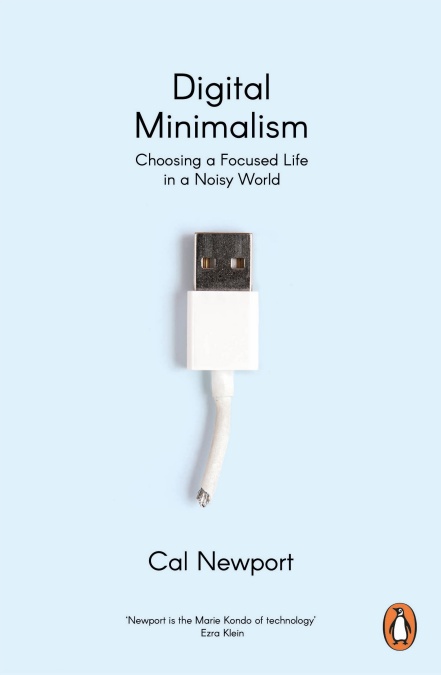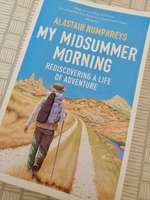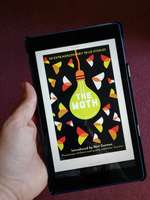Digital Minimalism - book review & notes

I recently read Cal Newport's latest book Digital Minimalism - On Living Better with Less Technology after being one of the volunteers who agreed to provide him with feedback from a 30 day digital detox.
As somebody who is already in alignment with a lot of what Cal writes about, I didn't find a huge amount of groundbreaking 'aha' moments but still there was a lot to think about and some really useful ideas to ponder. These are my key thoughts and notes:
Focus on how much time something costs vs, the amount of money. Money is infinite but time is not. Value your time.
The cost of a thing is the amount of what I will call life, which is required to be exchanged for it, immediately or in the long run - Thoreau - 'Walden'
Digital clutter i.e. apps, social media, distraction is costly (in time and life). People focus on the value somehing may produce without considering the cost it takes in time, attention and distraction.
Cal suggests that we think really hard about what our values are first. Get very clear about this, for example family, friends, meaningful work. Then, after clarifying our values, with every new piece of technology ask ourselves "Does this technology directly support something that I deeply value?" Not "does it offer some value?" This is a key distinction.
For example, browsing Twitter in search of distraction does not support an important value. Keeping up with distant family photo's on Instagram might support the value you place on family.
We should also ask "Is this technology the best way to support my values?" Perhaps visiting your family would be better than passively looking at their photo's on Instagram?
Lastly, we are told to think and define operating procedures with any tech we take on. Decide how and when you will use it. Hack it, control it, in turn off notifications if you don't want distractions. You use the tool to serve you, not just accepting how the maker thinks they want you to use it (for their benefit).
Rather than passive likes, LOL's, thumbs up etc, we need to get back to focussing on conversation centric communication. If you are going to converse with someone on a social media platform, converse in detail, like a real human being.
Get back to enjoying "Good Leisure" so that you don't need to be distracted or aimlessly flicking through your phone. Good leisure is any activity that includes making, exercise, doing things with your hands and mind. Creating real, tangible things, not electrons. Prioritise demanding physical activity over passive consumption. Use skills to produce valuable things in the physical world.
When you have lots of new Good Leisure activities at your disposal, then use technology to set up and support your activities, not be the activity. A good example of this would be using YouTube videos to learn how to fix your car, and then going and fixing it as a Good Leisure activity.
Schedule your leisure in advance. Then you can also schedule any time you want to spend on low quality leisure such as social media. Have a seasonal leisure plan each quarter. What could you do this winter, spring, summer, autumn? Schedule it, plan it and then go do cool, real stuff rather than sit with your tablet or phone. Take your leisure plan and then break it down to a weekly leisure plan. What high value leisure could you plan for this weekend?
There is a really interesting quote from Tim Wu which sums up the attention economy model of free apps such as Facebook, Twitter etc.
You gather a crowd and you're not interested in that crowd for it's money, but because you can resell them to someone else who wants their attention
Perhaps the most useful takeway I gained form this book is this quote from Cal himself,
The key to sustained success with (Digital Minimalism) is accepting that it's not really about technology, but is instead more about the quality of your life... it's about cultivating a life worth living in our age of alluring devices.



